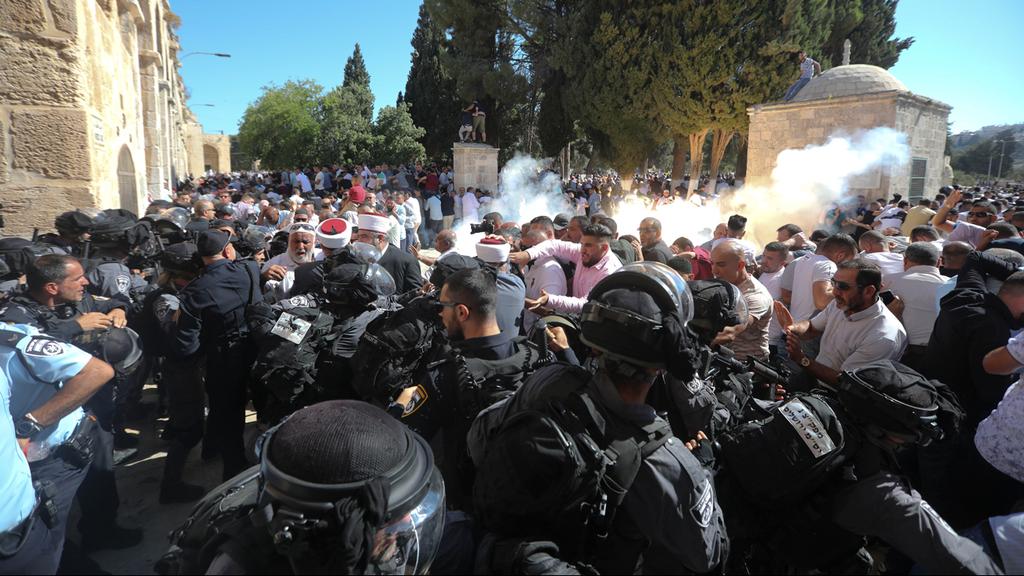The Supreme Court was due to hear a petition Monday to allow Jews to access to the Temple Mount compound in Jerusalem, which has been temporarily prohibited during the coronavirus crisis.
The petitioners, Yehuda Etzion and Arnon Segal, are far-right activists who have been challenging the government to allow free access to the compound, which is holy to both Jews and Muslims.
3 View gallery


Israeli police officers escort Jewish visitors to the Temple Mount
(Photo: Students for the Temple Mount)
They claim that Israel made an arrangement with the Kingdom of Jordan to keep both Muslims and Jews off the Temple Mount while the coronavirus pandemic was at its height.
The applicants' lawyer, far-right activist Itamar Ben-Gvir, maintained that Jordan's Waqf (Islamic trust), which has day-to-day control over the Temple Mount, was allowed back while Jews were still banned.
3 View gallery


A masked volunteer sprays hand sanitizer for a Palestinian man on his way to Friday prayers at the Al-Aqsa Mosque, March 2020
(Photo: AFP)
The petitioners argue that preventing Jews from ascending while Muslims are allowed up is unconstitutional. They further claimed that banning Segal, who is also a journalist, was a violation of the freedom of the press.
Even within Jerusalem, which has many contending traditions and religious affiliations, the Temple Mount is a highly sensitive location and has been the site of multiple clashes between Israeli security forces and Palestinian worshipers.
Jews revere the area as the site of both of the First and Second Jewish Temples, while for the last 1,300 years, Muslims have worshiped at the place where the Prophet Mohammad is traditionally believed to have ascended to heaven.
While Jews are permitted to ascend to the Temple Mount in heavily restricted numbers and only through one of the 12 gates, there are strict restrictions on prayer at Judaism's holiest site.


